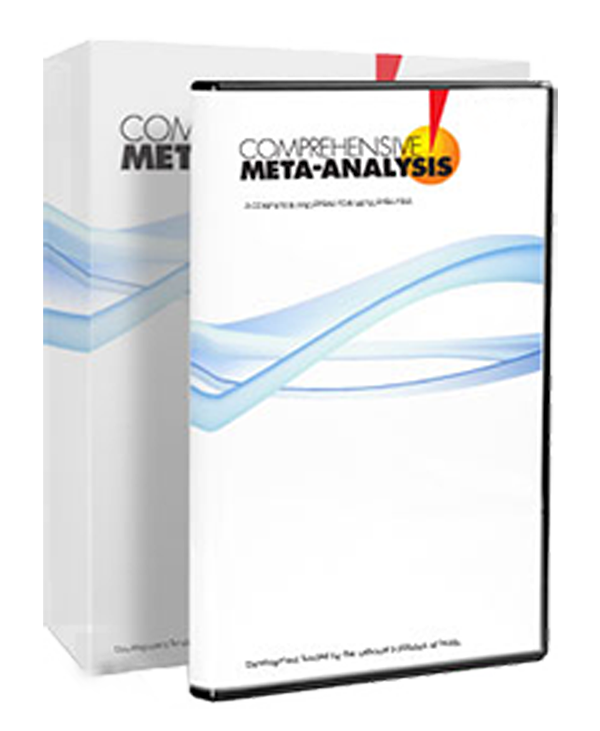Version 2 software
Important: Version 2 Users
If you own V2 and need to reinstall it on a new machine,
send us a note at [email protected] and we'll send a link to V2.
Comprehensive Meta-Analysis

Comprehensive Meta-Analysis (CMA) is a powerful computer program for meta-analysis. The program combines ease of use with a wide array of computational options and sophisticated graphics.

"One of the hardest things for non‐statisticians conducting meta‐analyses is to figure out how to combine data when the data are in different forms. Using continuous outcome as an example, one study might report before‐and‐after scores, and another might report change scores. Comprehensive Meta‐Analysis allows one to take data in any form and seamlessly converts it so that all the data can be included, or tells the meta‐analyst what additional information is necessary to complete the process. This one aspect of the program can save hours of time for non‐statisticians who are not used to converting data from one format to another."
Ian Shrier - McGill University, Canada
"I'm a graduate student at NC State University, and recently I tried out CMA for my lab. For the record, it is awesome. My lab, Meta World, is specifically focused on meta‐analysis, so we've used a lot of programs both good and bad. CMA is by far the best we've tried in terms of ease of use. It is simple enough for a first time meta‐analyst to use, but the best part is the diversity of options for the more advanced user. It is amazingly easy to switch effects models and other aspects, to the point that it's fun to fiddle around with things to see the difference they make. The options for output are everything you'd need for publication, and they look a good sight better than what I would have come up with without CMA. It is the only software that had all the functionality I needed for my thesis, and without it I would be stuck writing my own code."
Jennifer London - Doctoral Student in I/O Psychology, NC State University